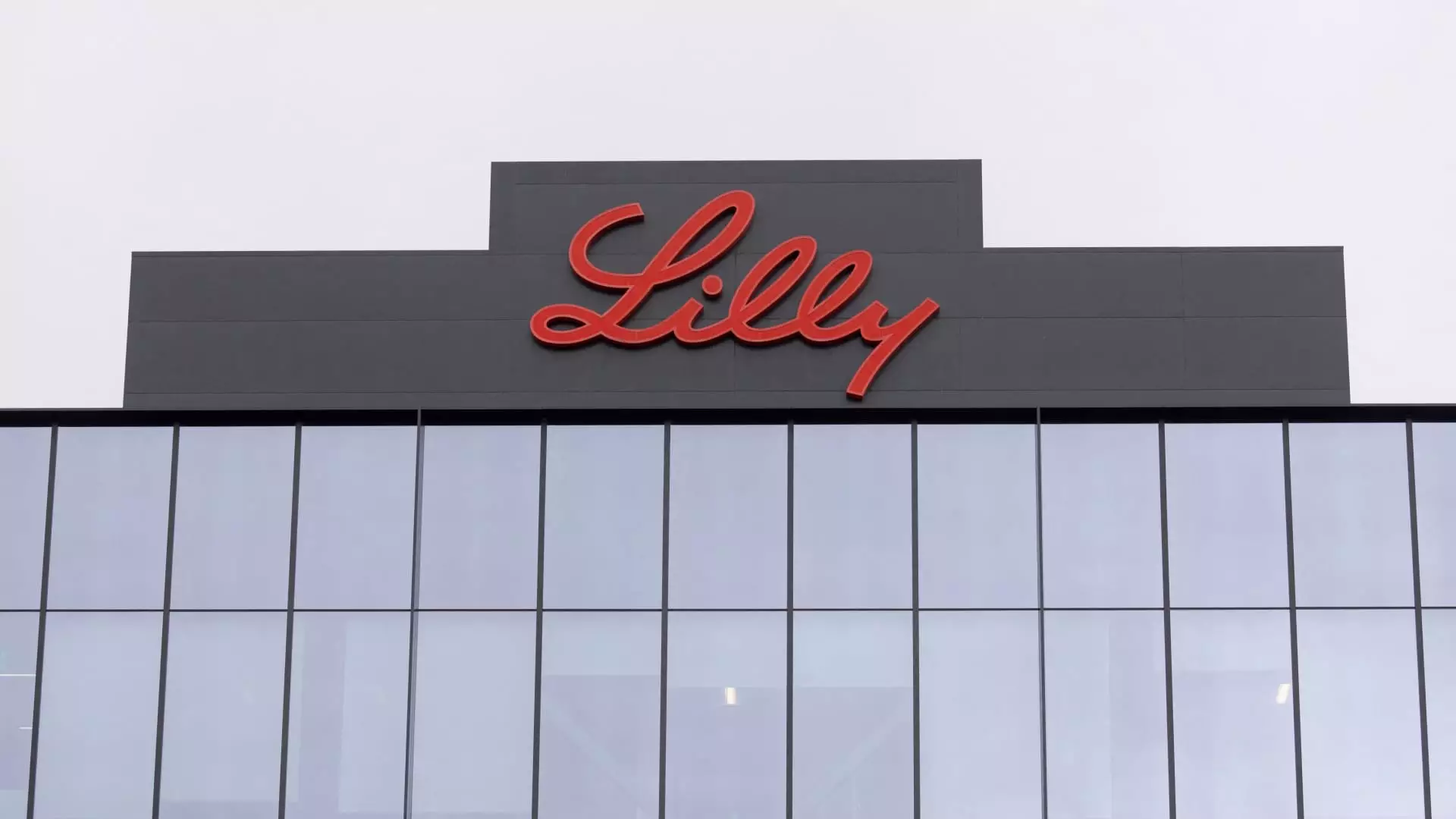Eli Lilly & Co., a leading figure in the pharmaceutical industry, recently released its third-quarter results, showcasing a decline that has sparked concern among investors and analysts alike. With its profit and revenue falling short of expectations, Eli Lilly’s stock plummeted by 10% in premarket trading. The company’s disappointing performance underscores significant challenges ahead and raises questions about its strategic outlook and future growth prospects.
Unexpected Financial Setbacks
For the third quarter, Eli Lilly reported adjusted earnings per share of $1.18, markedly lower than the anticipated $1.47. Moreover, the company generated $11.44 billion in revenue, falling short of the expected $12.11 billion. Such financial setbacks are alarming, considering that Eli Lilly had previously projected earnings of $16.10 to $16.60 per share for the entire year. The newly revised guidance estimates a much narrower range of earnings at $13.02 to $13.52 per share, demonstrating a considerable recalibration in the company’s financial aspirations.
The difficulties can be traced back to subpar sales figures for its blockbuster drugs, notably Zepbound—a weight loss treatment—and Mounjaro, an innovative diabetes therapy. The weak sales performance of these drugs, amplified by a $2.8 billion charge linked to the acquisition of Morphic Holding, burdened the quarter’s results. Furthermore, Eli Lilly adjusted its revenue forecast downward, now predicting total sales between $45.4 billion and $46 billion, significantly reduced from the previous ceiling of $46.6 billion.
Disappointment in Drug Sales
Zepbound, which had initially generated considerable enthusiasm following its approval nearly a year ago, amassed $1.26 billion in sales during its third full quarter on the market. However, this fell short of analysts’ expectations of $1.76 billion. Mounjaro, while witnessing growth—reporting revenue of $3.11 billion—failed to meet its $3.77 billion expectation, demonstrating that even with increased interest, growth rates were insufficient to satisfy market anticipations.
While demand for Eli Lilly’s incretin drugs has surged, particularly in the United States, the company had previously struggled with supply constraints. Fortunately, these supply issues appear to be resolving, as confirmed by the FDA’s report indicating the availability of all doses for Zepbound and Mounjaro. However, problems persist; the company’s CEO, David Ricks, indicated that during this period, inventory reductions among wholesalers substantially affected sales. This troubling scenario not only highlights the complexities associated with inventory management but also raises concerns regarding the overall distribution strategies of these vital products.
Understanding consumer frustration is critical for Eli Lilly as it navigates these hurdles. Ricks articulated this concern, explaining that the company opted to delay advertising and promotional efforts for Zepbound, aiming to mitigate mistakes during a period of inconsistent medicine availability. Beginning promotional efforts in November may help regain consumer trust and incentivize prescriptions, yet it also underscores a reactive rather than proactive market strategy.
To rectify these shortcomings and enhance drug availability, Eli Lilly has ambitious plans to boost production of incretin medications by 50% later in 2024 compared to the same timeframe last year. Such a plan signals a concerted effort to stabilize supply and meet growing demand, although it remains to be seen whether these enhancements will sufficiently revitalize sales in the upcoming quarters.
In the backdrop of these distressing results lies a highly competitive landscape, with rivals like Novo Nordisk also feeling the weight of market fluctuations; their shares fell approximately 3% following Eli Lilly’s announcement. Eli Lilly’s challenges are compounded by the escalating pressure from compounding pharmacies, which are producing custom alternatives to Eli Lilly’s branded medications. This burgeoning segment poses a notable threat, as it encourages price competition, urging Eli Lilly to rethink its pricing strategies and market presence.
As Eli Lilly consolidates its operations in the wake of this tumultuous quarter, strategic agility will be paramount. The company must leverage insights from its setbacks to refine its operations, foster patient confidence, and secure a stronger foothold in an increasingly complex pharmaceutical landscape. The forthcoming periods will be crucial as Eli Lilly works to transform its challenges into opportunities, aiming for a robust recovery and sustained growth in the years ahead.

